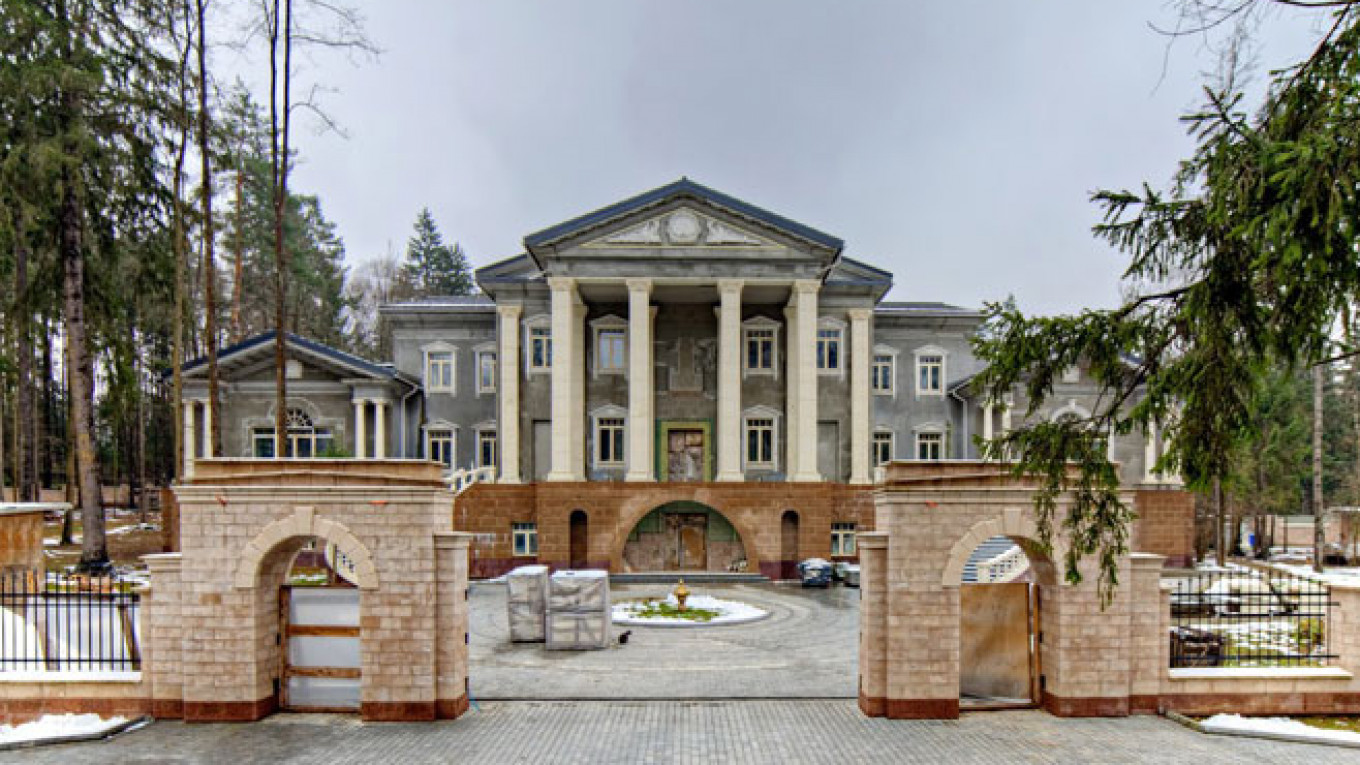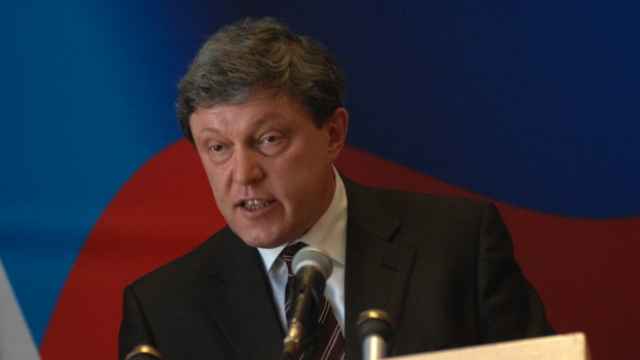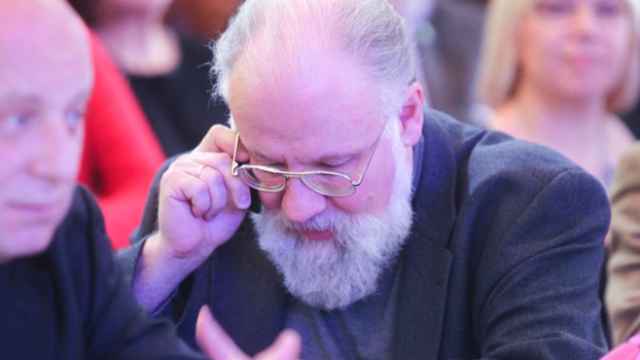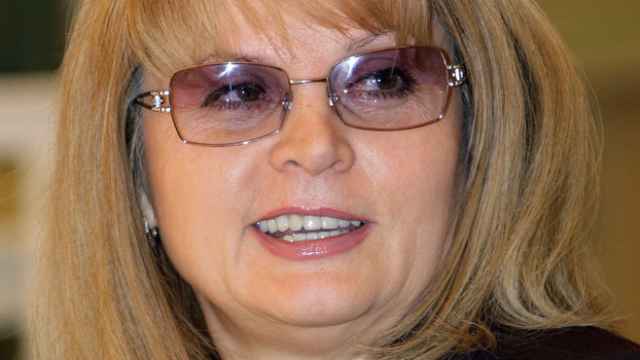A few miles west of Moscow, the road begins to be lined with walls. There are brick walls, stone walls, concrete walls, tall walls, and some very tall walls. Here and there, a gothic tower or a pillared facade peeks over the top.
These are the walls of Barvikha — the Russian Beverly Hills.
Even in Soviet times, this stretch of the Rublyovskoye Shosse was dotted with dachas for top officials and intellectuals. And since the 1990s, the Russian elite have crowded here. A few miles further along the road is President Vladimir Putin's Novo-Ogaryovo estate. Proximity to power has attracted oligarchs and top officials.
"Deputy Prime Minister Igor Shuvalov, Kremlin Spokesman Dmitry Peskov, Aeroflot chief Vitaly Savelyev, Senator Dmitry Sablin — It's the same people that we're always investigating," says Ivan Zhdanov, a lawyer at the anti-corruption fund led by opposition politician Alexei Navalny.
Zhdanov and his colleagues are on the attack. They have come to Barvikha to launch an audacious election campaign, right in the beating heart of the Russian establishment.
The anti-corruption fund wants to field a team of six in local elections set for April. If any of them are elected to the 10-seat municipal government, they will gain influence over the regional budget and land decisions.
"It would increase our ability to directly fight corruption," says Roman Rubanov, the director of the fund. Dodgy land deals and avoidance of property taxes are rife in these parts, he says: "We'll force them to pay."
The campaign will provide the first real test of the Kremlin's new election strategy. Earlier this month, ahead of nationwide elections later this year, authorities removed top election officials accused of overseeing fraud during previous votes, signaling that this year's elections should be perceived as more honest.
With the campaign in Barvikha, Navalny is testing the authorities' nerve. They face a choice, Navalny wrote on his website: "Either allow honest elections and risk getting some investigative deputies in their backyard, or use traditional means of dealing with undesirable deputies, and end hopes of fairer elections."
Traditionally, "undesirable deputies" are removed from elections before a ballot is cast. Rubanov himself submitted his papers to take part in the Barvikha vote with election officials on March 15. They were legally immaculate, he says, "but as always, it's a political decision whether they register us or not." He has no idea which way it will go.
Regional politics in Barvikha are oiled with money. Threats, bribes and physical violence are commonplace, says Konstantin Gavrikov, an activist local politician. In 2007, Valery Yakovlev, a former local government official overseeing property sales, was blown up in his Lexus on the main road.
But alongside the money — Barvikha is the richest rural region in Russia — lives an impoverished class. Very little money filters down to locals who aren't part of the elite.
When Rubanov and Zhdanov, dressed in shirts and ties, went knocking on doors, they found plenty of resentment to tap into: "It's out of control — we live our lives along walls," says Elena, 49, standing in her immaculate pink hallway beneath a small icon of an orthodox saint. "This place is full of palaces," says Maria, 39, at the doorway of another apartment. "But they won't pay for insulin for my diabetic baby."
Even if they are barred from running, Rubanov said their appearance had energized the election and local politics. There has been a rush of candidates registering to run, he said. "We have decreased the chances that pro-government or mafia candidates will get elected."
Contact the author at p.hobson@imedia.ru. Follow the author on Twitter at @peterhobson15
A Message from The Moscow Times:
Dear readers,
We are facing unprecedented challenges. Russia's Prosecutor General's Office has designated The Moscow Times as an "undesirable" organization, criminalizing our work and putting our staff at risk of prosecution. This follows our earlier unjust labeling as a "foreign agent."
These actions are direct attempts to silence independent journalism in Russia. The authorities claim our work "discredits the decisions of the Russian leadership." We see things differently: we strive to provide accurate, unbiased reporting on Russia.
We, the journalists of The Moscow Times, refuse to be silenced. But to continue our work, we need your help.
Your support, no matter how small, makes a world of difference. If you can, please support us monthly starting from just $2. It's quick to set up, and every contribution makes a significant impact.
By supporting The Moscow Times, you're defending open, independent journalism in the face of repression. Thank you for standing with us.
Remind me later.






